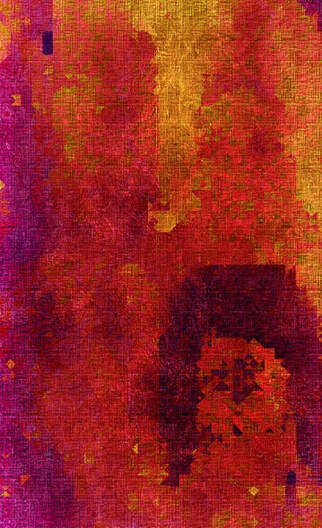In Absence of Kerosene by Diepreye Amanah
for our stove, my mother and I, with woven
polypropylene sacks, would set out
to the sawmill opposite Samuels street
to collect wood waste. In the evenings
I would squat beside her and watch as she makes
fire between three bricks.
She puts the lath strips and sawdust last.
Before she balances the pot to boil cocoyam,
she rubs palm oil over its belly.
Soon the fire catches and under the glow of the flames
and the shine of the aluminum, she dares to smile—
repeatedly—it creeps open and spreads
into a small laugh—the action so precise each time;
it seemed learned, practiced, acquired.
And I would think to myself:
“what joy she must feel.”
This was before the outer world swept in
bringing with it an unasked-for awareness
of my open palms shivering to be held;
of the emptiness around me suddenly expanding,
screaming to be filled.
This was still when the rain had not turned stale,
when night came when it should,
when after the cooking fire was put out
and the soot-coated pot was emptied,
my mother and I would sit on the floor of our room
to eat, the already-too-dim battery-operated flashlight
winking in the corner. I would tell her about
the wind, the human teeth and bones, the states of water,
whatever else my teachers wrote on the chalkboard that day,
and she would smile the same again.
As we removed the plates and placed our bed down
to prepare to sleep, we would sing
worship songs, our favorites: the traditional one:
"all the world is in God's hands,"
and Don Moen's God Will Make a Way.
Then I would say to her “today was so fun,
we should go to the sawmill every day.”
And she would laugh the same again.
Before I could think to ask, to know:
it is after, it is now,
and there is almost 11,000 km between us.
And oh it was grief, hurt, so heavy
it demanded a smile to carry, a small laugh to hold up.
Ah, and I had craved it,
wished I could steal it off her face,
and I had told myself if it didn’t fit, I would grow into it,
learn it, practice it, acquire it.
Still shakes me how the silly dreams
are the ones that arrive to you pure;
how the big bright ones—ones you’ve cradled for years
are held stuck
or are delivered a little too dusty, too broken, too late,
too something.
And yes, you smile huh?
And yes, you laugh huh?

